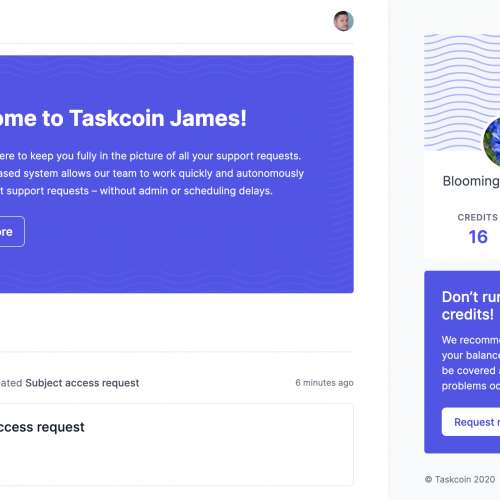Initial Coin Offerings (ICOs) have become a popular venture capital raising tool for startups and entrepreneurs developing projects and applications with blockchain technologies. This rise has sparked increasing interest from regulators on the American, European and Asian continents. As with any new technological innovation, regulation has yet to catch up leading to uncertainty amongst the startup community on what they can and can’t do.
We asked the team at Osborne Clarke, an international legal practice with offices situated around Europe, Asia and the USA, some questions around the current regulatory landscape of ICOs. We wanted to find out where we stand when it comes to law and how startups can help to mitigate risk when raising capital this way.
Here’s what they had to say…
Where does current UK law stand on ICOs?
“There is currently no English law governing ICOs specifically. The FCA (a key UK financial regulator) has, however, recently confirmed the long held suspicion that tokens or coins issued under an ICO will – if they possess the relevant characteristics – need to comply with applicable securities laws, rules governing financial promotions, as well as prospectus requirements. Somewhat unhelpfully, each ICO will need to be assessed on a case-by-case basis to understand what laws and regulations apply. Aside from rules relating to the issue itself, a whole host of other laws may be triggered by an ICO, including in relation to privacy and data protection. We recently published a note outlining the FCA’s position on DLT, which touches on ICOs.”
How is the legal industry trying to tackle the rise in ICOs?
“In the UK at least, the regulator is adopting a “wait and see” attitude. It sees the potential benefits of ICOs but is also well aware of the investment risks associated with these initiatives. Consumers are generally being advised to proceed with caution before parting with their hard earned pennies.
As the market matures – and we’re seeing evidence of that now – issuers are becoming more alive to the need to be reputable. The legal profession has a role to play in that and we’re certainly advising clients that ICOs are not just a quick way for issuers to raise cash at the risk or expense of would-be investors.
In other jurisdictions, ICOs have been banned outright, and in others they are being allowed to flourish more freely. So globally there have been reactions from regulators at both ends of the scale; the UK is somewhere in the middle and is generally keen not to stifle innovation whilst also seeking to protect the public.”
What can startups and SMEs do to protect themselves when raising money through an ICO?
“Investors are increasingly interested in the reputability and credibility of the businesses launching ICOs and the people behind them. More so than just a few months ago, business ventures looking to raise funds through an ICO have to make sense and have good people behind them. Let’s also not forget that these businesses are holding investors’ funds and probably some fairly confidential or sensitive information about those individuals. On that basis, it’s clearly crucial that those funds and data are kept secure, otherwise the financial and reputational consequences can kill off the venture before it’s even got started.”
Are there any specific laws surrounding ICOs that a startup or SME must comply with when raising money this way?
Unfortunately, the answer to that question is that it depends. Laws and regulations relating to securities, data protection, financial promotions and consumer protection (amongst others) may all come into play. However, whether and to what extent they apply in any given situation will depend on a number of things, for example the characteristics of the token/coins in question, what data the business holds about investors and so on.
Another really important point to be aware of is the possible need to comply with laws of jurisdictions other than the one the issuer is based in. Equivalent rules to the ones we’ve talked about exist in various countries around the world and often have extra-territorial reach.
Given the ICO industry is borderless how and in what ways are startups or SMEs liable for the laws in those countries?
Again, this depends on exactly which rules are triggered but it’s absolutely right to say that issuers could well be caught by overseas legislation and regulation. One jurisdiction that’s often cited is the USA, as the regulator there was one of the first to clarify explicitly that US securities laws could apply to issuers operating outside the USA.
Are there any legal frameworks out there that you’ve seen that may help startups and SMEs protect themselves from any negative legal implications?
Certainly in the UK the position is that an ICO will need to comply with existing legal frameworks; as yet, there is no new legal framework for ICOs. Clearly getting good lawyers involved early is key to navigating the legal and regulatory landscape but there really isn’t a one-size-fits all approach, as there are any number of permutations of ICOs.
Summary
Below, we’ve summarised the key points from the responses we received from the team at Osborne Clarke.
- UK Government is playing a “wait and see” game, it sees the benefits and negatives in the recent ICO innovation.
- Try to get lawyers involved early to help mitigate any risk and to help navigate the legal and regulatory landscape.
- Think international as you could may need to comply with laws of jurisdictions other than the one you’re based in.
- Laws and regulations relating to securities, data protection, financial promotions and consumer protection may all be relevant to your ICO.
- Consider the characteristics of your token/coin and what information you hold about your investors – these may determine which laws you must comply with.
- Ensure funds and data are kept secure, otherwise the financial and reputational consequences may stop your venture from the outset.
We would like to say thank you to Ian Mckenzie, and the team at Osborne Clarke, for answering our questions around ICO regulation. If you’re seeking legal advice or support with your own ICO you can contact their team at www.osborneclarke.com/contact-us/.
You can also check out their dedicated blockchain section on their website at www.osborneclarke.com/insights/feature/blockchain/ for the latest blockchain related publications.
If you’d like to chat about your startup, blockchain idea or ICO you can contact us at www.simpleweb.co.uk/contact/.
If you’d like to discuss your startup or project, get in touch with Simpleweb today.



